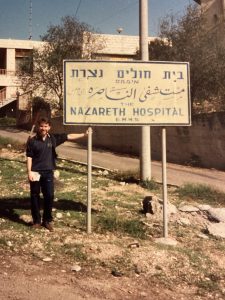
After such a long wait for it to happen, it seems hard to think that it is now in the past. Much anticipated — and twice postponed as a result of Covid — it was good to finally set off for Israel. Nazareth holds a special place in our lives. We had met there in 1991 when Rachel was working at the Nazareth Hospital as a midwife, and I was a medical student on my final year elective. I was back at the hospital in 2018, having completed the Petra to Nazareth cycle, but even since then, much has changed. The accommodation in the doctors’ house was barely recognisable, having undergone a major refurbishment. The hospital itself had expanded with many new buildings and refurbished areas. Other parts, such as the canteen, were strangely unchanged! On to the trail itself, whilst we enjoy walking, it had been a long time since undertaking a trek over several days. The first day was a strange mixture of terrain, walking along modern roads and forest paths. A surprising – and somewhat depressing – feature was the rubbish strewn along the way in so many places. The pace of new building meant that at several points, the way-marked trail was blocked, and a detour was required. This made the step count for the day somewhat higher than anticipated! The heat was a challenge, and we found that the recommended intake of three or more litres of fluid during the walk was not unrealistic. A highlight of the day was a visit to the remains of Sepphoris, a first-century Roman town. We arrived late at Cana, grateful for good food and a bed.
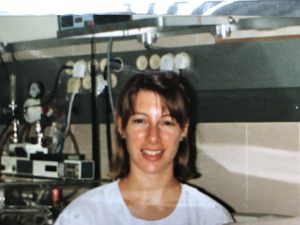
Day two took us from Cana to Kibbutz Lavi, walking at one stage along the course of the Roman road that once linked Acre and Tiberius. The pool at the kibbutz hotel provided a chance to loosen up after the day’s walk.
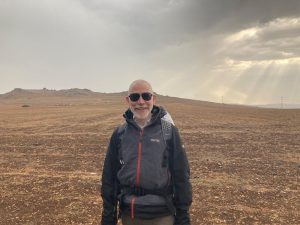
The third day saw a dramatic change in the weather with thunder, lightning, and torrential rain as we set out. However, by lunchtime, the sky had cleared, and the sun had returned. We walked to the Horns of Hattin, the site of a significant battle where the crusader armies were defeated by the forces of Saladin in 1187. This battle, dramatised in the film Kingdom of Heaven, marked the beginning of the end of the crusader kingdom at that time. We continued from there down the valley. Sadly, we were denied entry to the Druze village – our muddy boots and attire were deemed disrespectful. After another uphill walk, the day finished near the top of the Arbel Cliffs.
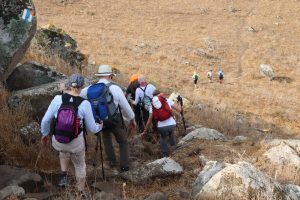
The final day of walking began with a descent down the cliff face. Some found this more challenging than others: I (Michael) am not good on heights; Rachel found this a pleasant change from slogging up hills! From the foot of the cliff, we walked to Magdala and the site of some impressive excavations revealing the synagogue, road, and marketplace from the time of Christ. A further longer-than-planned walk with a number of detours took us to our accommodation on the shore of the Sea of Galilee.
Our post-walk rest day started with watching the sun rise over the Golan Heights. We continued with a visit to the excavations of Capernaum, a boat trip, the Church of the Beatitudes and lunch at a roadside shawarma bar before returning to Nazareth.
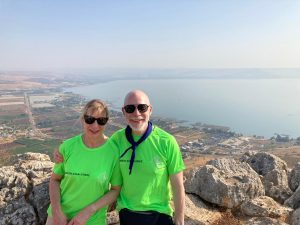
Overall impressions? The walk was a challenge. Having previously completed the cycle, I would not say it was any easier: certainly, there was no uphill pedalling but no freewheeling either! The company was good. It was amazing how we bonded together. Perhaps, given that we are all brothers and sisters in Christ, it should not be surprising. The aim was for this to be a pilgrimage, and the devotions provided by the pastoral team at the hospital helped keep this a focus, but I think that the realisation that in so many places, we were truly walking where Jesus walked was just a great reminder. Our guide was informative and, in many instances, provided some interesting insights from a Jewish perspective. Whilst he accepted Jesus as a rabbi, sadly, he did not recognise him as Messiah.
We finished our trip with a few days in the Old City of Jerusalem and a reminder of the religious, cultural and political difficulties of the land. Difficulties and divisions that can only be resolved in Christ.
Michael and Rachel Trimble
We’re running two events in 2024: